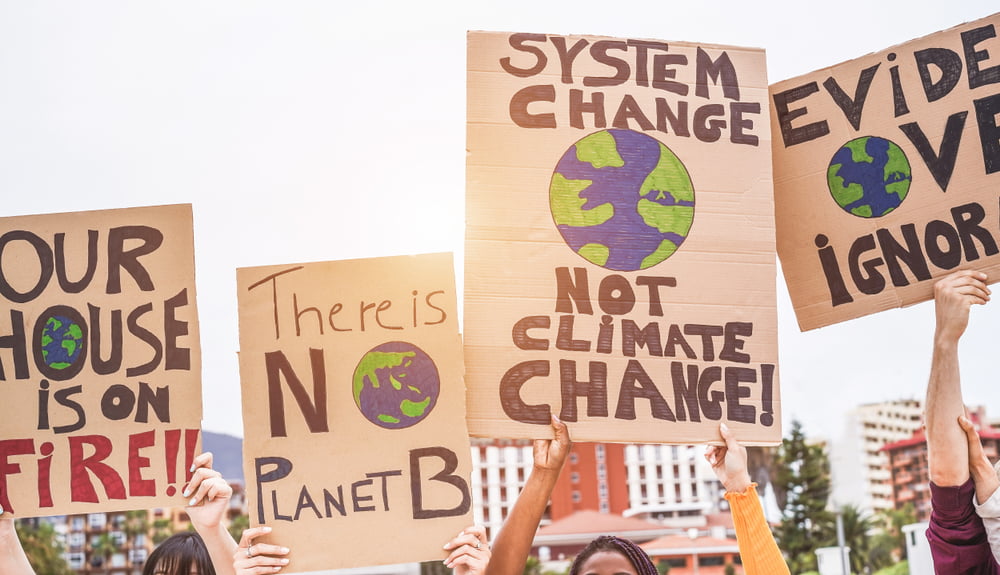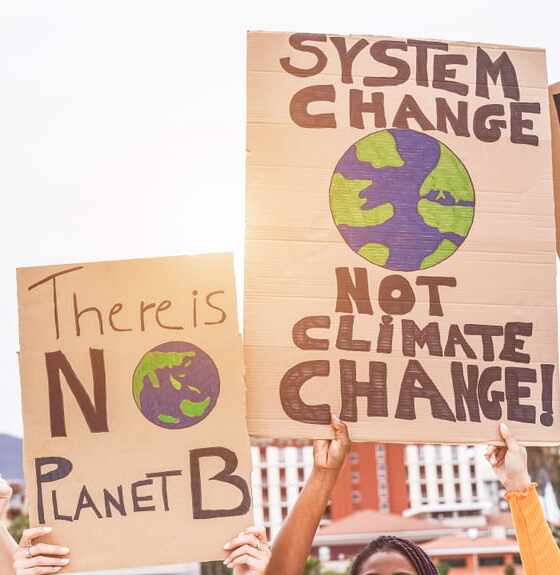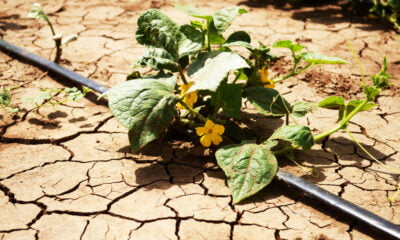

Interview
The Katingan Mentaya Project on the Dangers of Climate Change Denial
The Katingan Mentaya Project is the largest peat forest conservation and carbon finance offsetting initiative of its kind.
Everything we do at the Katingan Mentaya Project (KMP) is geared towards fighting climate change.
In fact, we’re living proof that carbon finance through carbon credits can combat climate change.
Climate change denial and misinformation is a barrier to meaningful change
And the Katingan Project just one of many projects around the world working towards the UN Sustainable Development Goals in the ongoing fight to lower emissions and deforestation, among other goals.
While initiatives like the Katingan Mentaya Project are clear on what must change in order to facilitate natural forest restoration, for example, and to rescue endangered species, there is a threat to climate change action that is all about peoples’ attitude.
COP26 laid out global plans for fighting climate change over the next few years. The resultant Glasgow Climate Pact addresses everything from lowering carbon dioxide emissions to reversing forest degradation and protecting every vital habitat possible.
But it doesn’t cover one of the biggest challenges to the action of global populations to combat climate change – climate change denial. Here’s why this growing movement is so dangerous.
Misinformation surrounding climate change is growing and changing
At the same time that COP26 was held in Glasgow in November 2021, the climate change sceptics and deniers hit social media.
Below are some of the most viral climate denying statements and theories, collated by the BBC throughout 2021.
Each one of these claims adds to the growing body of climate denial and scepticism throughout the global population that damages attempts to engage local communities with the kinds of societal changes that are necessary for protection from climate damage.
Climate change denial conspiracies that are going viral
Global warming is a natural cycle
People have been arguing for decades that the fast-increasing global temperatures of the last century are simply part of a natural, self-correcting cycle.
This means, of course, that they refuse to accept that global warming is caused by what we do as human beings.
More recently, a new version of this theory has emerged. On social media in 2021, an enormous number of posts claiming that a “Grand Solar Minimum” will eventually cause temperatures to naturally fall, regardless of the action taken by humanity.
This is where, they say, that the sun will emit lower levels of energy as part of its natural cycle. However, science tells us that while it’s possible for the sun to go through weaker phases, the most this could possibly lead to is a temporary cooling of between 0.1 and 0.2C.
Obviously, with annual emissions soaring and even with some of the work going on to meet the UN sustainable development goals, this is nowhere near enough to undo the damage already caused.
Over the last two centuries, global warming has led to an increase in temperature of around 1.2C. For now, this is predicted to reach at least 2.4C by the end of the century.
Climate scientists know for a fact that global warming is not, in fact, the sun’s natural cycle.
This is because the stratosphere, which is the atmospheric layer nearest the sun is actually cooling. The danger comes from the layer that is closest to us on earth that is warming fast.
Global warming is actually positive
There are lots of social media posts stating that global warming is a positive thing for humanity.
They say that cold is more destructive than heat and therefore higher temperatures will lead to more habitable regions.
This is quite obviously unsubstantiated, illogical and untrue.
While it’s possible that some extremely cold regions would temporarily become more habitable, this would not last for long. And, of course, the rest of the world would be burning by then.
Warming can also lead to changes in the weather pattern and cause extreme rainfall, which affects the world’s food stability.
According to the UN’s Intergovernmental Panel on Climate Change (IPCC): “climate-related risks to health and livelihoods will increase with global warming of 1.5C.”
Taking action to combat climate change is too expensive
This is a very common claim against sustainable development goals. This is predicated on the assumption that fossil fuels are vital for economic growth.
Therefore, the argument continues, should fossil fuels be limited or phased out, then economic growth won’t be possible, and the poorest will be hardest hit.
However, this is an extremely limited view. In reality, replacing fossil fuels with new, clean tech will not stop economic growth.
The world has transitioned through a number of major industrial revolutions, and this is another.
In fact, renewables are now cheaper in many areas than fossil fuel powered energy.
Conversely, if the world fails to lower emissions and combat climate change, then the global economy will freefall after 2050 due to the damage caused by inevitable natural disasters, food shortages and the effects of extreme temperatures.
Renewables can’t be relied on
In February 2021, there was an energy crisis in Texas, US. A catastrophic grid failure left millions of people without heat and light during a very cold spell.
Immediately, this was blamed by a number of US media outlets on the failure of wind turbines.
This has been used as an argument for the unreliability of renewables. In reality, however, blackouts are caused by poor management and distribution of electricity – not the source of the power.
According to a representative from the climate think tank IDS Global, this kind of line of argument against renewables is about conserving the status quo, so that the world stays reliant on oil and gas.
The evolution of climate misinformation
As you can see, while these arguments are labelled climate denial, some of the conspiracies go further than outright fact denial.
Climate change denial in the forms listed above absolutely does exist. And much of the organised campaigning has been shown to be funded by companies linked with fossil fuels.
However, the situation is evolving. Some argue that the more relevant threat to climate action in 2022 are more complex and harder to fight back against.
More complex conspiracies appeared in 2021
A report called Climate Change Misinformation in the age of COVID-19 from Logically and APCO Worldwide was published in October 2021.
This report demonstrates that, in some cases, the danger is shifting from outright denialism into a number of complex narratives.
The report analyses 6.67 million social media posts and news media posts. It found that climate change denial now incorporates more esoteric theories.
For example, there is a move towards ‘doomerism’. This is the idea that while climate change IS happening, it’s too late for climate action to have any impact. Furthermore, any climate action is a scam to divert more money to the elite.
The pandemic influences climate change scepticism
The report also shows that, since COVID-19 arrived, the pandemic has influenced climate denial too.
Climate change lies are increasingly showing up online mixed in with all kinds of pandemic conspiracies, such as QAnon, the anti-vax movement and the so-called ‘Great Reset’.
For the corporate sector, there is increasing awareness of the need to showcase ESG (Environmental, Social and Corporate Governance) credentials.
However, research shows that there are many ways corporations have been seen to manipulate climate change data. This is what’s referred to in the media as ‘greenwashing’.
All of this mixed in together represents a significant challenge to meaningful climate action around the world.
Combating misinformation through real-world projects with local communities
At the Katingan Mentaya Project, we know that communication is key. The work we do with local communities is proof positive that there are workable solutions to ensure natural forest restoration.
The Katingan Project is the world’s largest program of this kind. Our output stands at about 7.5 carbon credits annually. This is roughly equal to removing two million cars off the road every year.
Because we work with local communities, the Katingan Mentaya Project adds value to the area via carbon credits. We use carbon finance to ensure natural forest restoration. And, of course, our goals are closely aligned with the UN Sustainable Development Goals.
We work to ensure natural forest restoration
We protect vital habitat areas across Central Kalimantan in Indonesia.
As well as the natural forest restoration and protection we facilitate, there is a strong element of protecting endangered species too.
Critically endangered species live in the Central Kalimantan area of the Katingan Project. For example, it’s where between 5 and 10% of the world’s numbers of Proboscis Monkey, Southern Bornean gibbon and Bornean Orangutan live.
Critically endangered species like these are essential for humanity’s future survival.
Protecting the intact peat swamp forest in the Katingan Project area
The intact peat swamp forest in the Katingan Mentaya Project area is dense with carbon. By directly stopping these natural forests from being turned into plantations, we save around half a billion tonnes of carbon dioxide.
Local communities are absolutely key to the work of the project. They are actively involved, as employees, decision makers and via a range of sustainable development initiatives.
By working in this way – from the inside out – we are boosting the region’s chances of survival in the future.
Tangible action is the key to combating climate misinformation.
We do it through carbon credits and working towards the sustainable development goals.
We do it through community and collaboration, and by tackling more than one problem at a time.
And as the temperature continues to rise, there must be development and progress to offset emissions, speed up deforestation and ensure the protection of our collective future.


 Business6 months ago
Business6 months agoHow to Become an Environmentally Conscious Entrepreneur in 2024

 Features11 months ago
Features11 months ago5 Reasons That Diamonds Can Be Excellent Green Investments

 Environment12 months ago
Environment12 months agoEmerging Trends and Advancements in Sustainable Agriculture

 Features8 months ago
Features8 months agoFoodTech Advances Can Feed the World Despite Climate Change


























